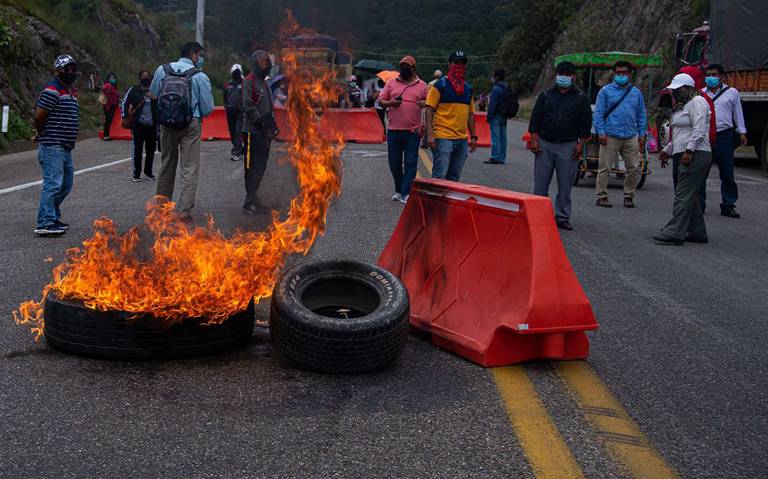
by Mágdalena Gómez
An ominous week closed for Chiapas and the entire country with the deployment and confrontation of criminal groups with high-powered weapons in the northern zone of San Cristóbal de las Casas on June 14, in a violent dispute over control of the Central de Abastos and a public market. All of this occurred in the several hours that it took for National Guard and police forces to arrive. The specific gangs and cartels are public and known to the citizens, with a range of official alliances that act with overt impunity and complicity, in fact, of the three orders of government. All the while, they sow social fear, at present paralyzing, except in isolated and clearly limited groups, which undoubtedly favors the State. These facts were widely denounced and censored in networks and some media inside and outside the country.
The same did not happen with the attempt in Oxchuc, on June 18, to carry out special elections in their municipality, under their system of usos y costumbres, whose very predictable results will be those of a new suspension, annulment and postponement of the process, motivated by the violence, also armed, which did not stop in many of the communities that would participate.
Why is it important to focus on Oxchuc? The municipality suffered under the political bosses, among others, of María Gloria Sánchez Gómez and her family, with a history of conflicts and aggressions. Even when she was removed from office, the Electoral Tribunal ruled in her favor. For all these reasons, it is worth remembering that today it is the only municipality in the state of Chiapas that achieved recognition of the election under its normative systems outside of political parties. A struggle of almost three years before the electoral courts was deployed through the Permanent Commission for Peace and Justice of Oxchuc which initially rejected their proposal for self-determination and in which they finally achieved approval. After the elaboration by INAH of a cultural survey that accounted for the historical existence of an internal normative system, and, following that, a consultation was organized, from November 27 to December 28, 2018, and on January 5, 2019, its results were reported: the community assemblies of indigenous consultation, out of the 116 communities 59. 18 percent, were in favor of the usos y costumbres system; while 38.40 percent were in favor of the continuation of the political party system. The decision arising from the free, prior and informed consultation process was formalized by the General Council of the Institute of Elections and Citizen Participation of Chiapas (IEPC). Based on this, authorities were elected for a three-year term.
It’s worth remembering that last December 15, 2021 in the municipality of Oxchuc, the election process of its municipal authorities under the internal normative system (2022-2024) was initiated, but that election was suspended due to unfortunate violent acts, such as road blockades, burning of houses, detention of vehicles and people, injuries and one death. Subsequently, the IEPC of Chiapas determined that the process had not concluded. Therefore, the exercise could not be validated. Meanwhile, the state Congress appointed provisional authorities who showed no interest in promoting the pending election. Once again, the protest had to be organized before the IEPC, which determined that it was up to the community authority to carry it out. This exercise of June 18 once again experienced violent actions to sabotage its conclusion and recognition.
We ask ourselves: what is the common thread that unites the events of June 14 and 18? In the first case, the actions of organized crime groups, in the second, local cacique power groups allied to a political party that have made abuse and dispossession their modus operandi. In these and other serious cases happening in other regions of Chiapas, these two factors connect and are unified in networks of governmental complicity that by default fail to comply with the obligation to guarantee the rights of citizens, indigenous or not. With respect to the rights of indigenous peoples, there is no known intention to take them seriously and to consider their fulfillment, for that would require reversing the axes of the so-called Fourth Transformation.
At the moment of Oxchuc’s triumph, the federal government, through the National Institute of Indigenous Peoples (INPI) was present, in all its Tseltal costume, to recognize a result that did not cost them any effort or struggle. Now, in the face of this violent siege and disregard for their rights, no statement has been issued since December 15 and subsequent months.
It is hard to accept the profound truth full of wisdom from a young Tseltal who told me: Every law is only written on paper and is never carried out as it should be.
This piece was published in La Jornada on July 21, 2022. https://www.jornada.com.mx/2022/06/21/opinion/017a1pol English interpretation by Schools for Chiapas.
